The Canadian government has passed a new 12% tax on vaping products as part of its broader strategy to reduce youth vaping and tobacco consumption. This aim of the tax is making vaping products less affordable and consequently, deter purchase and use particularly among price-sensitive youth demographics. The tax will go into effect in July 2024 and will be applied to all vaping products, including e-liquids, devices, and related accessories.
However, tobacco harm reduction and smoking cessation experts have expressed concerns that the tax could push consumers towards the black market, where products are unregulated and potentially more dangerous. They argue that a balanced approach is needed, one that addresses youth vaping without penalizing adult smokers who use vaping as a less harmful alternative to traditional cigarettes.
Similarly, international health experts represented by Smoke Free Sweden, have criticized the Canadian Ministry of Finance’s vape tax plan. They highlighted that the proposed 12% tax hike contradicts Sweden’s approach, where alternative products are made more accessible and affordable through risk-proportionate taxation. In fact, Sweden’s recent reduction in snus taxes further underscores this strategy.
With Sweden’s smoking rates nearing 5%, largely due to the availability of alternative products like snus and vapes, the country is on the brink of becoming smoke-free. In contrast, Canada’s smoking rate stands at a high 12%. Dr. Delon Human, leader of Smoke Free Sweden, emphasized that increasing vape taxes diverges from Sweden’s successful model. He urged Canadian authorities to prioritize accessibility and affordability of less harmful alternatives to cigarettes to save lives.
The 2021 vape flavour ban is back on the table
Meanwhile, Canada is also set to implement a flavour ban on vaping products, a regulation initially introduced in June 2021 but never enforced. Health Minister Mark Holland has revived the ban, citing his experience at Heart and Stroke, where he saw vaping as a public health issue. Holland argues that the lack of early action led to a new generation of young people becoming addicted to nicotine, resulting in significant health consequences.
The ban would restrict manufacturers to using fewer than 100 specific flavour ingredients, allowing only tobacco, mint, and menthol flavours. Sweeteners would be prohibited, and sensory attributes must align strictly with the allowed three flavours. Naturally, experts in the field have warned that in line with real-world data from places where such restrictions have been set in place, the measure would have unintended consequences.
The Vaping Industry Trade Association (VITA) warned that the ban might be detrimental to adult ex-smokers who rely on flavoured vapes as a less harmful alternative to smoking. VITA’s Managing Director, Thomas Kirsop, views the ban as a personal project for Holland, intended to win him political favour as it supported by major health organizations like the Heart and Stroke Foundation, the Canadian Cancer Society, and the Canadian Lung Association.
In other news, a recent Research Co. poll indicates that a significant majority of Canadians would be in support of emulating the United Kingdom’s proposed generational tobacco ban. This law gradually increases the legal age to purchase cigarettes by one year annually, ultimately prohibiting those born in or after 2009 from buying cigarettes. About two-thirds would be in favour of such a measure, with only 21% not supporting it. Canada has also taken steps to mandate warning labels on individual cigarettes, a move supported by over two-thirds of Canadians.
Here are our top product recommendations
-
Product on sale
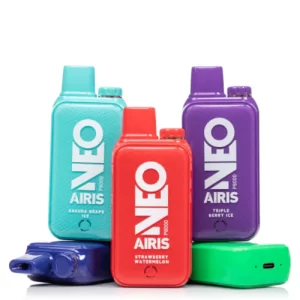 Airis NEO P5000 Disposable Kit Rechargeable 650mAh Battery Airflow AdjustableOriginal price was: $12.99.$1.50Current price is: $1.50.
Airis NEO P5000 Disposable Kit Rechargeable 650mAh Battery Airflow AdjustableOriginal price was: $12.99.$1.50Current price is: $1.50. -
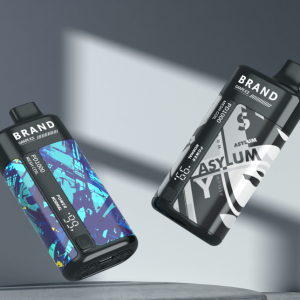 AMV0167 Box Body Flat Mouthpiece$9.99
AMV0167 Box Body Flat Mouthpiece$9.99 -
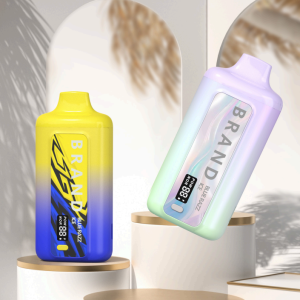 AMV0166 Box Body Flat Mouthpiece$9.99
AMV0166 Box Body Flat Mouthpiece$9.99 -
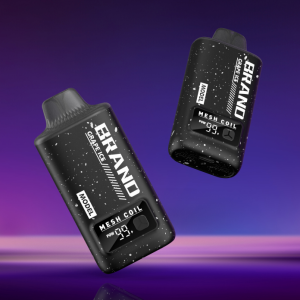 AMV0165 Box Body Flat Mouthpiece$9.99
AMV0165 Box Body Flat Mouthpiece$9.99 -
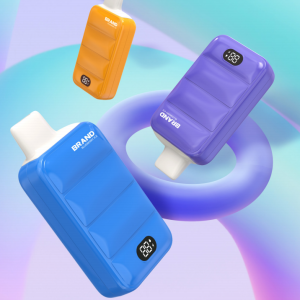 AMV0164 Box Body Flat Mouthpiece$9.99
AMV0164 Box Body Flat Mouthpiece$9.99
